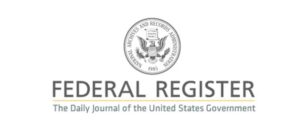 On October 2, 2015, HUD published a Proposed Rule in the Federal Register that would implement some rather substantial changes in the way the Department manages and markets its REO inventory.
On October 2, 2015, HUD published a Proposed Rule in the Federal Register that would implement some rather substantial changes in the way the Department manages and markets its REO inventory.
If your Firm is involved, in any way, with the sale or financing of HUD REO properties – you need to be aware of these proposed changes. Some examples are as follows: (Note: this is not an all-inclusive listing)
- Currently, an As-Is appraisal is obtained from an active member of the FHA Appraiser Roster by one of HUD’s Marketing & Management (M&M) contract Firms when establishing a list price for an REO property.The Proposed Rule would expand the valuation methods available to include alternate methods such as a Broker Price Opinion (BPO) and an Automated Valuation Model (AVM). The thinking is that, by utilizing BPOs and AVMs, the cost of an appraisal and time associated with obtaining an appraisal will be greatly reduced. (Note: that loud groan you just heard was from licensed and certified appraisers who have been processing REO appraisals for many years.)
- At the present time, HUD can market an REO property as being sold As-Is “with repair escrow” if the overall cost of minimum property requirement (MPR) repair items does not exceed $5,000. This Proposed Rule would increase this repair cost threshold to $10,000 and would allow HUD to increase or decrease this amount based on changes to the Consumer Price Index.
- The Proposed Rule would revise current procedures by requiring the purchaser’s broker to submit bids on an REO property through HUD’s designated electronic bid system rather than through the exclusive broker. Also, winning bids would be made available publicly rather than making them available for an inspection at a time and place designated by the HUD local office. Losing bids would no longer be made available either through electronic posting or through the HUD local office.
- HUD’s “Good Neighbor Next Door” (GNND) program is designed to encourage law enforcement officers, teachers and firefighters/emergency medical technicians to purchase an REO property (at a reduced value) in a distressed urban community and live in that property. However, the currently codified Rule, while it requires teachers and firefighters in the GNND program to live in the areas they serve, does not do so with respect to police officers. Therefore, the Proposed Rule would add this requirement for police officers (Note: that loud groan you just heard was from police officers that were aware of this “loophole”.)
- Currently, HUD may elect to pay all or a portion of the financing and loan costs as well as the broker’s sales commission (upon request by the prospective purchaser) not to exceed the percentage of the purchase price determined appropriate by HUD for the area. The Proposed Rule would remove HUD’s obligation to pay the broker’s sales commission and specify that settlement cost assistance is only available to owner-occupant purchasers and not available to investor purchasers. (Note: that loud groan you just heard was from REO investors and sales brokers.)
Comments on the Proposed Rule are due by December 1, 2015. You are encouraged to read the entire Rule for full details. You can access this Rue in the Federal Register at the link below:
